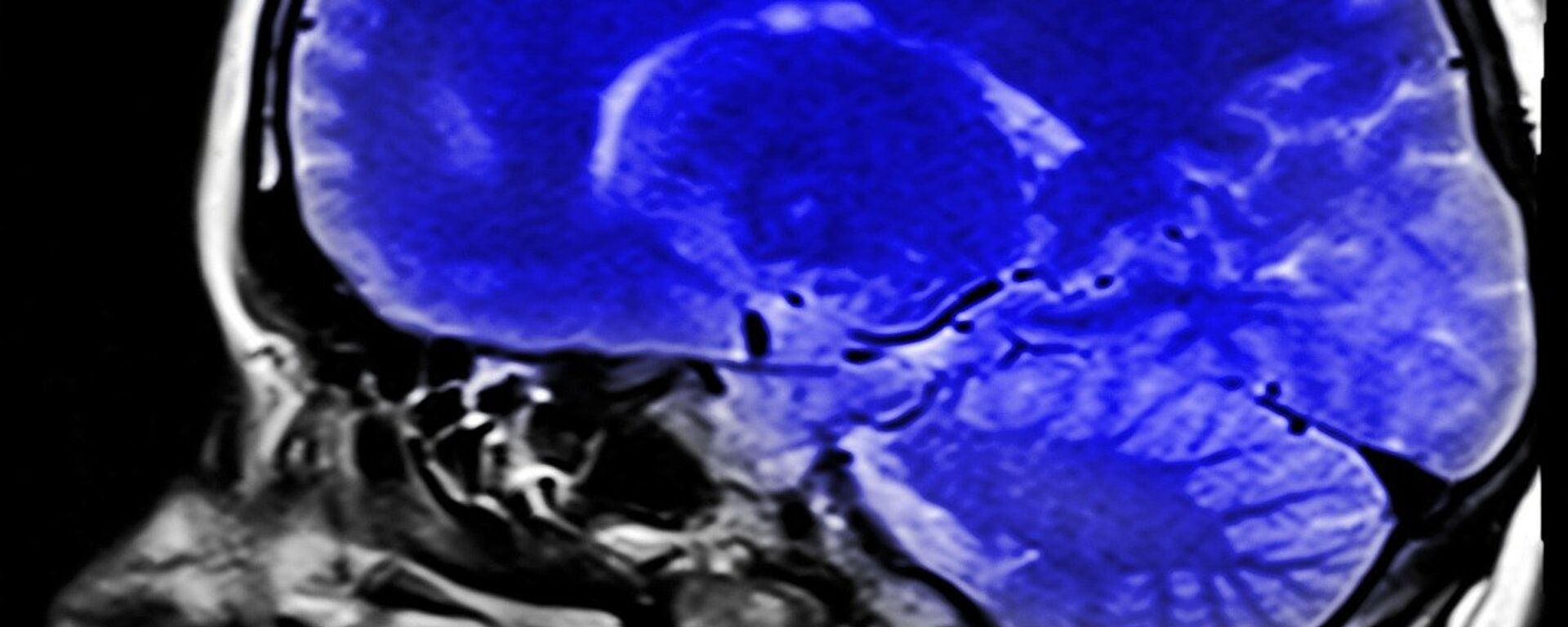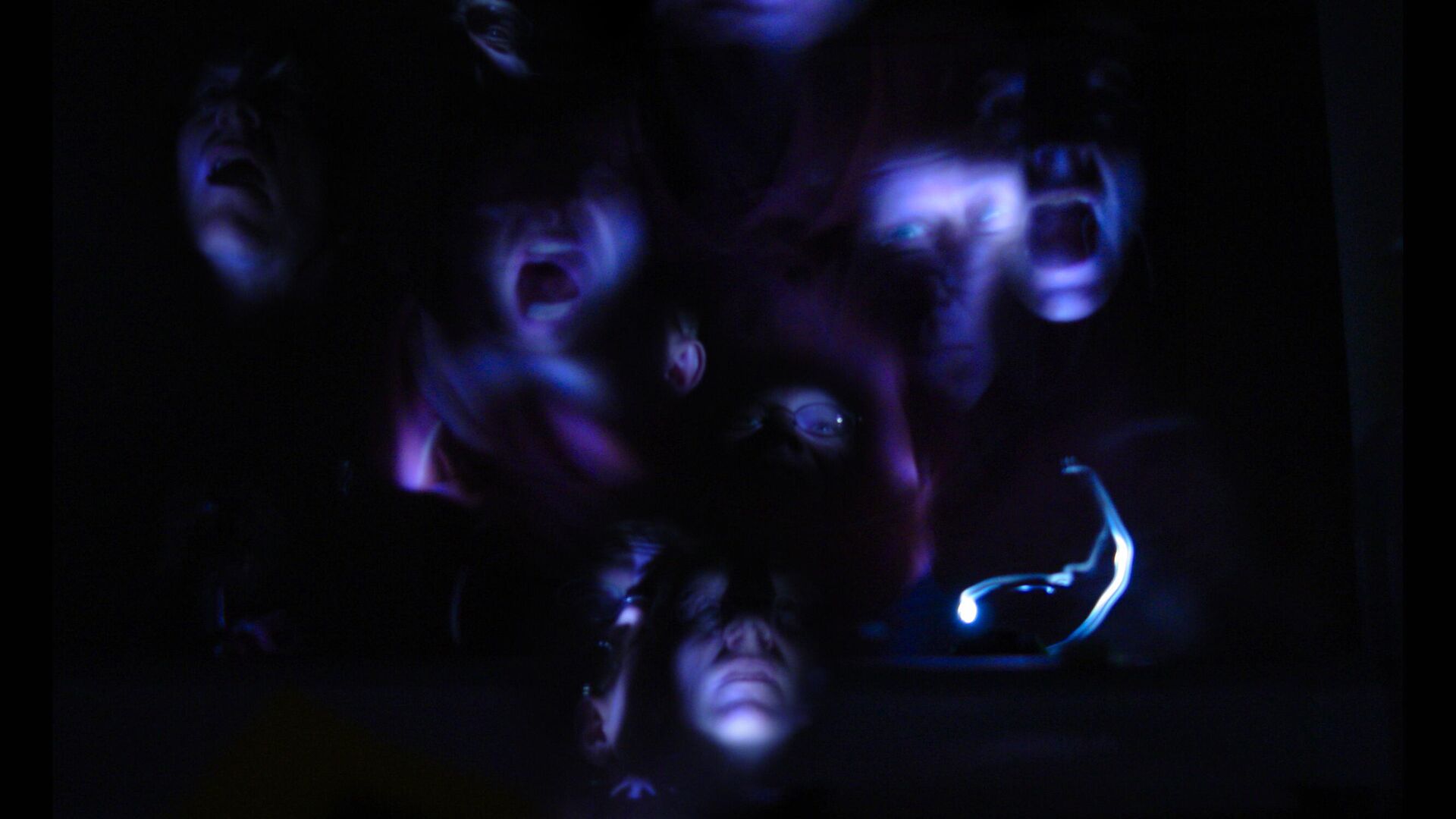https://sputnikglobe.com/20220609/study-recurring-nightmares-may-be-early-sign-of-parkinsons-disease-1096139330.html
Study: Recurring Nightmares May Be Early Sign of Parkinson's Disease
Study: Recurring Nightmares May Be Early Sign of Parkinson's Disease
Sputnik International
Disturbing dreams have long been linked to Parkinson's disease, particularly among males, but this is the first study to look into whether these symptoms are a... 09.06.2022, Sputnik International
2022-06-09T03:01+0000
2022-06-09T03:01+0000
2022-06-09T03:01+0000
science & tech
research
nightmare
parkinson's disease
https://cdn1.img.sputnikglobe.com/img/07e6/06/09/1096139467_0:274:2667:1774_1920x0_80_0_0_ea592b74425ff348e6853b634fb4448e.jpg
According to new research in older men, the emergence of nightmares later in life could be an early marker of developing Parkinson's disease. The study, published in the journal EClinicalMedicine, examined the health of 3,818 older men with normal brain function for 12 years and discovered that those who had frequent nightmares were twice as likely to develop Parkinson's disease. The majority of diagnoses were made in the first five years of the research. The findings suggest that older persons could be evaluated for Parkinson's disease by questioning them about their dreams. The use of early therapies could then help to prevent the emergence of physical symptoms such as tremors, stiffness, and slowness, according to scientists.Early detection is one of the most difficult aspects of Parkinson's disease. Most people have already lost 60% to 80% of dopamine-releasing neurons in sections of their brain stem by the time they realize they have the disease. Furthermore, individuals who have frightening dreams are five times more likely to have rapid illness progression, according to a previous study by the same researcher, Abidemi Otaiku.By following a large group of older men for more than a decade, the study is aimed at helping to clarify the distinction between Parkinson's side effects and prodromal, a term scientists use to describe mild symptoms that emerge before major problems appear.Over the course of the survey, those who self-reported having frequent disturbing dreams were twice as likely to develop Parkinson's disease over 12 years. Furthermore, frequent disturbing dreams were linked to a six-fold increase in the probability of getting the neurological condition in the first four years of the study.Researchers have been looking into the link between sleep and Parkinson's disease for some years. Approximately a quarter of Parkinson's patients have regular intense nightmares from the time of diagnosis, and others have had scary dreams for up to ten years before being diagnosed. According to previous research, people with Parkinson's disease are four times more likely than the general population to have frequent nightmares. Rapid eye movement sleep disorders, in which dreams are physically reenacted during the night, are more common in Parkinson's patients.The researcher suggested that It is difficult to identify what is going on at a biological level in Parkinson's patients who have nightmares without more studies measuring brain activity during sleep. Men with Parkinson's disease had more unpleasant dreams than women with the disease, but the reason for this is unknown. One theory is that in certain males, the late development of nightmares is an early symptom of neurodegeneration. Early in life, women are substantially more likely than males to have regular nightmares, but around the age of 65, men begin to catch up.The findings also suggest that our dreams can reveal vital details about our brain anatomy and function, making them a promising subject for neuroscience research. Electroencephalography (EEG) will be used by the researchers to investigate the biological causes of dream modifications. They will reportedly also investigate whether the findings can be replicated in bigger, more diverse cohorts, as well as possible relationships between dreams and other neurodegenerative disorders like Alzheimer's.
https://sputnikglobe.com/20220509/scientists-discovered-cell-stress-that-can-restore-brain-proteins-associated-with-dementia-1095353463.html
https://sputnikglobe.com/20171002/breakthrough-parkinson-study-better-treatment-1057890133.html
Sputnik International
feedback@sputniknews.com
+74956456601
MIA „Rossiya Segodnya“
2022
News
en_EN
Sputnik International
feedback@sputniknews.com
+74956456601
MIA „Rossiya Segodnya“
Sputnik International
feedback@sputniknews.com
+74956456601
MIA „Rossiya Segodnya“
science & tech, research, nightmare, parkinson's disease
science & tech, research, nightmare, parkinson's disease
Study: Recurring Nightmares May Be Early Sign of Parkinson's Disease
Kirill Kurevlev
Managing Editor
Disturbing dreams have long been linked to Parkinson's disease, particularly among males, but this is the first study to look into whether these symptoms are a precursor to Parkinson's or a side effect of the disease.
According to new research in older men, the emergence of nightmares later in life could be an early marker of developing Parkinson's disease.
The study, published in the journal
EClinicalMedicine, examined the health of 3,818 older men with normal brain function for 12 years and discovered that those who had frequent nightmares were twice as likely to develop Parkinson's disease. The majority of diagnoses were made in the first five years of the research.
The findings suggest that older persons could be evaluated for Parkinson's disease by questioning them about their dreams. The use of early therapies could then help to prevent the emergence of physical symptoms such as tremors, stiffness, and slowness, according to scientists.
Early detection is one of the most difficult aspects of Parkinson's disease. Most people have already lost 60% to 80% of dopamine-releasing neurons in sections of their brain stem by the time they realize they
have the disease. Furthermore, individuals who have frightening dreams are five times more likely to have rapid illness progression, according to a previous study by the same researcher, Abidemi Otaiku."Although it can be really beneficial to diagnose Parkinson's disease early, there are very few risk indicators and many of these require expensive hospital tests or are very common and non-specific, such as diabetes," neurologist Abidemi Otaiku from the University of Birmingham in the UK said, per a EurekAlert news release. "While we need to carry out further research in this area, identifying the significance of bad dreams and nightmares could indicate that individuals who experience changes to their dreams in older age – without any obvious trigger – should seek medical advice."
By following a large group of older men for more than a decade, the study is aimed at helping to clarify the distinction between Parkinson's side effects and prodromal, a term scientists use to describe mild symptoms that emerge before major problems appear.
Over the course of the survey, those who self-reported having frequent disturbing dreams were twice as likely to develop Parkinson's disease over 12 years. Furthermore, frequent disturbing dreams were linked to a six-fold increase in the probability of getting the neurological condition in the first four years of the study.
Researchers have been looking into the link between sleep and Parkinson's disease for some years. Approximately a quarter of Parkinson's patients have regular intense nightmares from the time of diagnosis, and others have had scary dreams for up to ten years before being diagnosed.
According to previous research, people with Parkinson's disease are four times more likely than the general population to have frequent nightmares. Rapid eye movement sleep disorders, in which dreams are physically reenacted during the night, are more common in Parkinson's patients. 
2 October 2017, 23:29 GMT
The researcher suggested that It is difficult to identify what is going on at a biological level in Parkinson's patients who have nightmares without more studies measuring brain activity during sleep.
Men with Parkinson's disease had more unpleasant dreams than women with the disease, but the reason for this is unknown. One theory is that in certain males, the late development of nightmares is an early symptom of neurodegeneration. Early in life, women are substantially more likely than males to have regular nightmares, but around the age of 65, men begin to catch up.
The findings also suggest that our dreams can reveal vital details about our brain anatomy and function, making them a promising subject for neuroscience research. Electroencephalography (EEG) will be used by the researchers to investigate the biological causes of dream modifications. They will reportedly also investigate whether the findings can be replicated in bigger, more diverse cohorts, as well as possible relationships between dreams and other neurodegenerative disorders like Alzheimer's.



